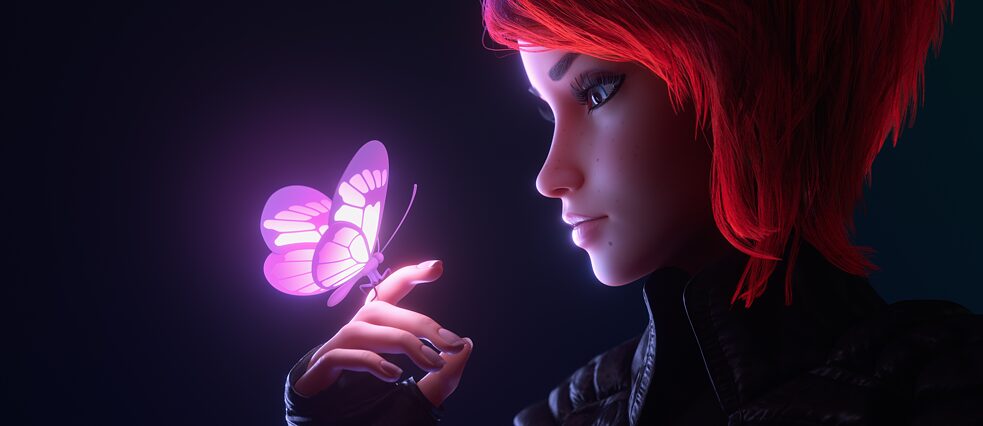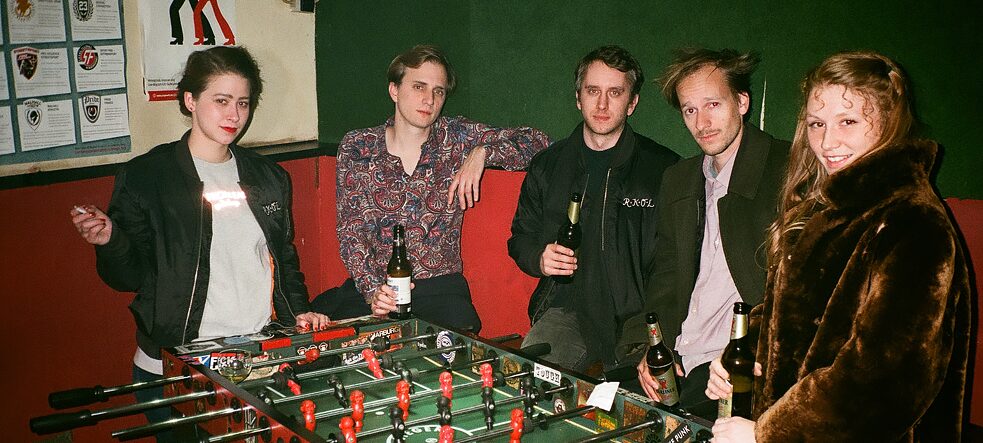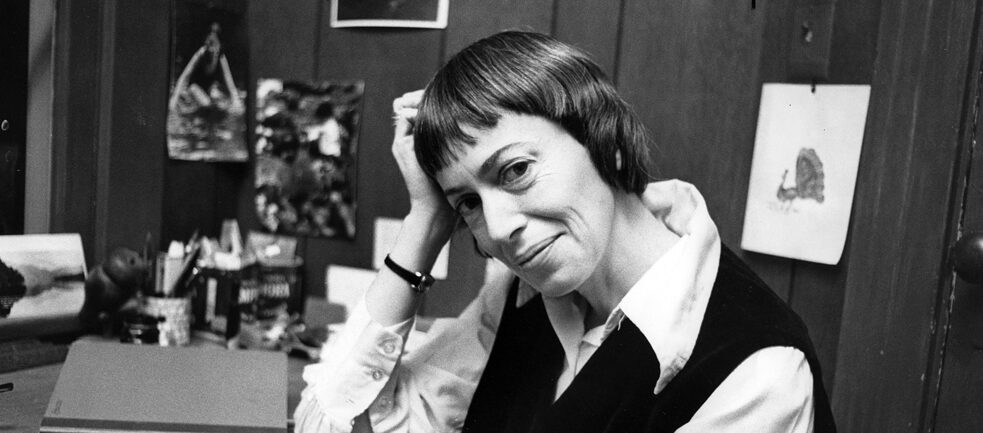Contemporary Literature
Brave New Utopias

Interstellar warfare, climate collapse, dangerous mutants: science fiction narratives frequently conjure up a dystopian future. Some writers have made it their business to counteract this – and create positive utopias.
Watching Mary Shelley’s Frankenstein create an artificial human, being shown a Brave new world by Aldous Huxley, experiencing Star Wars with the Jedi knights – science fiction transports readers or cinema audiences to alien worlds. But strange though these worlds may seem, they generally aren’t completely removed from reality, in fact these fictional portrayals of the future are often a continuation of the familiar world.
Science fiction, says Hania Siebenpfeiffer, Professor of Modern German Literature in Marburg, extrapolates the experienced present onto an “unknown, but logically consistent future”. In other words: science fiction stories are usually more than just stand-alone imaginary scenarios about how a future might look. They also always relate to the world as the authors – and readers – know it: they are continuations or futuristic derivations of the present. Maybe that’s why science fiction stories are often about interstellar wars, climate collapse or the imminent end of the world. A whole genre is characterised by dystopian tales – because ultimately our world is not perfect, so how could our imaginary future be?
Our World Isn’t Perfect – So How Could a Fictional Future Be?
But is it imperative for science fiction to take this route? Can’t there also be future-oriented stories depicting a better, functional and healthy world – positive utopias in modern literature? Donna Haraway’s works have been addressing this issue for years. The author and science theorist from Santa Cruz, California, likes to use the acronym “SF”, which as interpreted by the professor doesn’t just stand for science fiction, it can also encompass terms such as science fantasy, science fact, speculative fabulation, and even speculative feminism.
In her Camille Stories – incorporated into her book Staying with the Trouble (2016) – the US author experiments with various possibilities: in one story children in the near future have three parents, as a result of which the Earth’s population instantly reduces by more than half. In another scenario, humans are implanted with genetic material from endangered animal species, which enables them to support the survival of these species.
Why all this? Because the way stories are told, what possibilities and illusions they permit, makes a difference. “It matters what stories make worlds, what worlds make stories” is a motto of Donna Haraway. Her theory is that by creating utopian universes, aren’t we also to some extent making them more viable?
 Berlin-based writer group “Rich Kids of Literature”
| Photo (detail): © William Minke / Rich Kids of Literature
Berlin-based writer group “Rich Kids of Literature”
| Photo (detail): © William Minke / Rich Kids of Literature
“As If the Catastrophe Was Inevitable”
In Germany a literary movement has been emerging over the past few years, which aims to build positive future worlds through fiction. Authors like Charlotte Krafft address the question of the effect positive utopias could have in their stories and essays. According to Krafft, science fiction stories can help us understand the present better. “Getting closer to now from a future perspective,” she explains in an essay for the Süddeutsche Zeitung, is “the modern way of unlocking the present.” Even today algorithms give us driving directions or show us products and streamed content we never knew we needed before. So science fiction would seem relevant as a genre here: “Describing the present by making statements about a fictional future – that seems all the more enlightening in a time that comes from the future and as a result causes the present to become intangible and impossible to describe from a present-day perspective.” However what stands out is the fact that speculative literature today is largely dystopian: “As if the catastrophe was inevitable.”
On the Hunt for Utopia
But how to go about it so that speculative writing doesn’t end up being dystopian? How can “a new way of talking about the future” as Krafft expresses it, be successful? Or, as she has one of her characters saying: “How on Earth do I get out of that?”
Krafft is a founder member of the Berlin-based writer group led by Leonhard Hieronymi, “Rich Kids of Literature”. The author published his manifesto Ultraromantik in 2017, in which he lists a few theories about what literature could achieve today. For instance he states that it is not possible to find truth through writing alone, through an attempt to be honest. “Truth is created by fictions.” So although the plot of science fiction books is fictional, it could however become “honest and passionate” – “if the author believes in their fictions”. An ultra-truth, a “maybe as yet unknown form of the truth” would be difficult to comprehend but could theoretically emerge if authors were to combine romantic material with science fiction – to form a kind of “Ultra-Romanticism” or “Science Romanticism”.
Whether this is about a new project, a new direction of impact – or whether it’s predominantly a case of “trying out a new speaking model”, as the weekly newspaper Die Zeit observes somewhat disenchanted: It’s a new move in the literature scene, and also a new reflection on science fiction authors who were pioneers in their field. “You didn’t think you were the first here?” said Charlotte Krafft in
her essay. Krafft is not the first to make headway in the literary utopia, in positive speculative storytelling. That would be Donna Haraway, of course. But then there’s also science fiction author Ursula K. Le Guin, who regularly focused on political and social issues in utopian stories as early as the late 1960s. In her novel The Left Hand of Darkness written in 1969 for instance, she described a genderless society.
 Author Ursula Le Guin in 1972: the multi-award-winning science fiction and fantasy writer was focusing on positive feminine utopias back in the 1960s.
| Photo (detail): © picture alliance/AP Photo/Uncredited
Author Ursula Le Guin in 1972: the multi-award-winning science fiction and fantasy writer was focusing on positive feminine utopias back in the 1960s.
| Photo (detail): © picture alliance/AP Photo/Uncredited
Comments
Comment